Real Estate Email Marketing Software
Real estate professionals gain a significant edge by leveraging email marketing software tools tailored for the industry. This optimization focuses on explaining the key benefits and features of these tools.
Email marketing tools cater to real estate professionals’ unique needs in various ways. They catapult efficiency, foster stronger relationships, and bolster conversion rates. For instance, these tools automate time-consuming tasks like responding to client queries, negating the need for manual labor.  Automated messages offer consistent communication, keeping potential clients engaged and informed, a strategy that eventually culminates in successful conversions.
Automated messages offer consistent communication, keeping potential clients engaged and informed, a strategy that eventually culminates in successful conversions.
Moreover, these tools promote personalization, allowing real estate agents to send messages geared towards a prospect’s specific interests. For instance, it’s likely a client interested in beachfront properties would appreciate receiving listings of such homes rather than generic ones.
Some capabilities make certain email marketing software stand out as tailored for real estate. The foremost among these is an intuitive dashboard that displays crucial metrics at a glance. An optimum real estate email marketing software should also offer list segmentation features, allowing agents to compartmentalize leads based on factors like location and property preferences.
Another sought-after feature is dynamic content, where email content modifies based on the recipient’s behavior or preferences. For example, if a recipient has shown interest in condominiums, future emails should prioritize listings of such properties.
Best Real Estate Email Marketing Software Platforms
Continuing from the significant advantages and insightful features of email marketing software tailored for real estate, let’s now dive into identifying the top-rated platforms currently transforming the industry.
Diverse software options dominate the market, each branding its unique selling proposition. Five leaders in the game, based on customer reviews, market presence, and integration capabilities include MailChimp, ActiveCampaign, Sendinblue, Constant Contact, and Zoho CRM. Below, we have a comparative table detailing these software options:
- MailChimp: Boasting a household status, MailChimp grants real estate professionals detailed analytics, deployment optimization, and an integrated CRM system. It’s easy for beginners yet robust enough for experienced marketers.

- ActiveCampaign: As a strong contender, ActiveCampaign offers automated sales CRM and email marketing tools to target, nurture, and convert leads. It allows the planning of personalized client journeys that enhance customer relationships.
- Sendinblue: Known for its superior email marketing automation, Sendinblue enables real estate agencies to send transactional SMTP emails, SMS messages, and, importantly, enables the design of intricate automation workflows.
- Constant Contact: A veteran in the email marketing software space, Constant Contact supports real estate companies with multi-channel campaigns, automated nurture sequences, and more. However, it lacks integrated CRM features.
- Zoho CRM: Perfect for real estate agents seeking robust customer relationship management combined with email marketing, Zoho CRM supports this dual function. Despite limited template choices, its scalability and extensive features make it an excellent choice for growth-focused agencies.
How to Choose the Right Email Marketing Software for Your Real Estate Business
In the pursuit for an ideal real estate email marketing software, it’s crucial to match your business needs with cost efficiency. This section brings forth some key points to consider during your search.
Recognizing the cruciality of aligning software features with your business needs holds utmost importance. Realize, every real estate business comes with unique targets, customer bases, and goals. For instance, a small real estate agency might prioritize affordability and easy-to-use interfaces, while a larger firm may require advanced automation and analytics features. Thus, sketch your needs before diving into the search. Define your aim – whether it’s nurturing leads, optimizing client communication, or enhancing performance measurement – and use this as your anchor while investigating different software.
Moving onto the monetary aspect, conducting an in-depth cost versus benefits analysis warrants consideration. Here, it’s not the cheapest option that’s necessarily the best. Instead, it’s the software that delivers the most value for your investment. Consider parameters including:
- Subscription Fee: Monthly or annual fees vary across platforms and increase with additional features.
- Onboarding costs: Training and setup fees can be a significant expense, especially for larger teams.
- Integration Costs: If you’re planning to integrate the software with other platforms, understand the accompanying costs. For example, MailChimp and Zoho CRM offer free integrations with select platforms.
Analyze projected revenue growth against these costs. Opt for a software that bolsters your bottom line, rather than diminishing it. Remember, a powerful email marketing software can transform passive subscribers into active clients, enhancing your return on investment exponentially.

